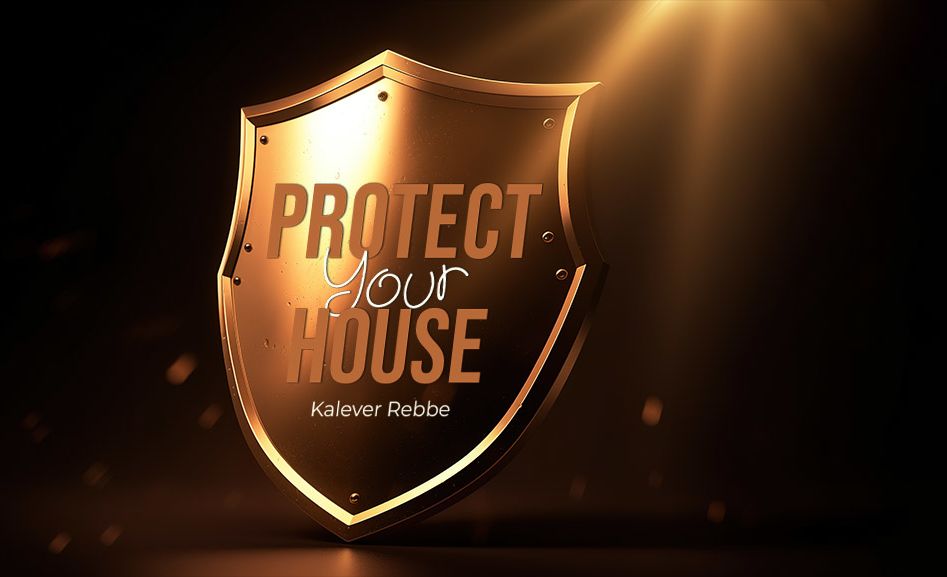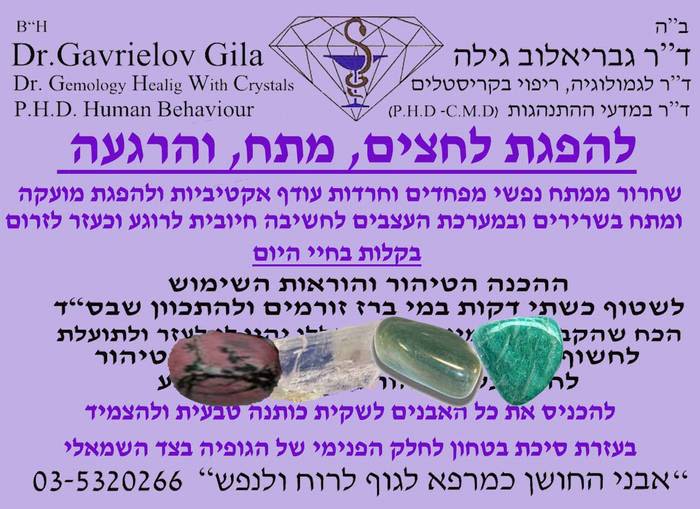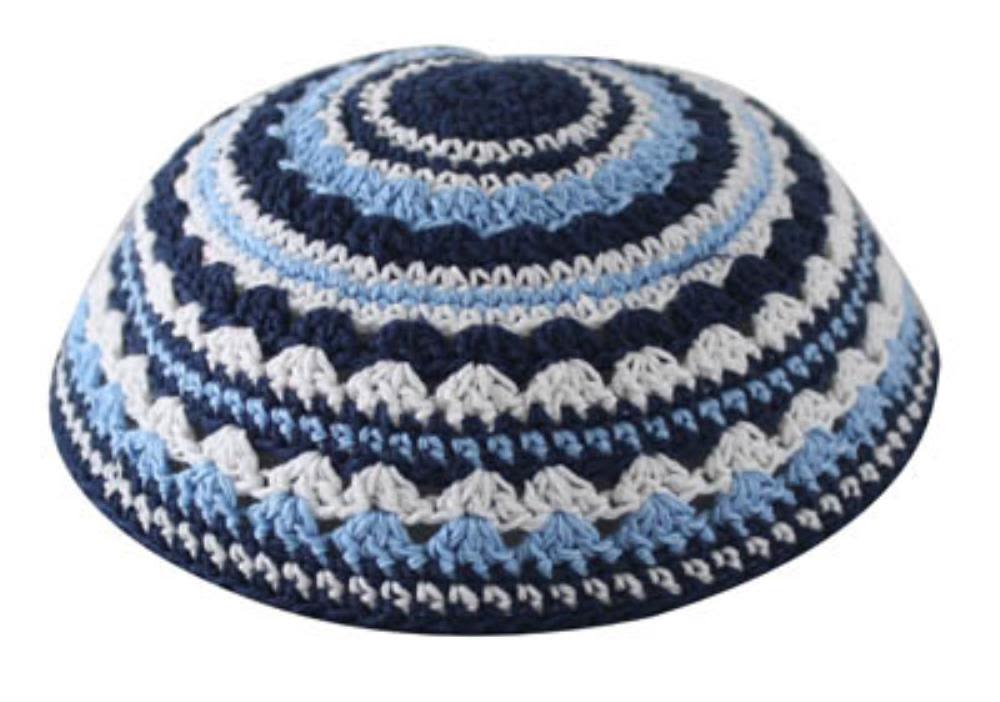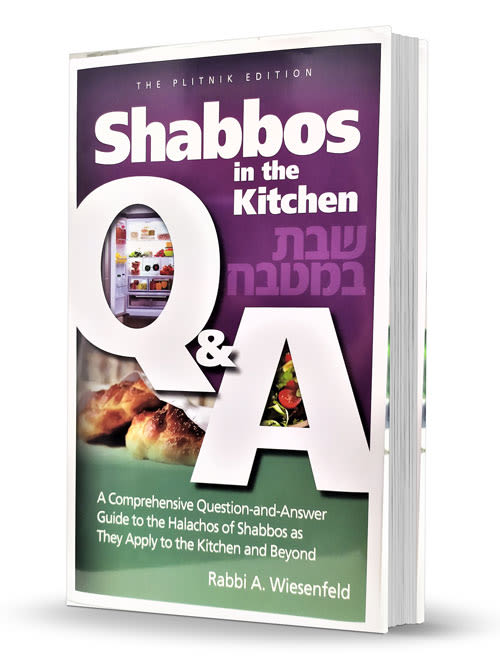
Talk to the Soul
'Talking to the neshama' is one of the most sublime, profoundly 'real' experiences a person can have. And any one of us can do it, our children too...

Back in the days when I still used to watch Oprah Winfrey, one of the funniest aspects of the show, at least for me, was the whole ‘talk to the hand’ thing some of the participants would launch in to.
If you know what I’m talking about, you don’t need any more description. If you (hopefully…) don’t, it’s where the person would stick their hand up, palm outwards, fingers spread, and tell whoever it was that they were arguing with, that they were now, officially, talking to their hand, as opposed to the person themselves.
Once you reached the ‘talking to the hand’ stage, it was clear that the conversation was over, at least for half of the participants. The wall was up. The ears were switched off. Any potentially meaningful communication had now come to an abrupt end.
It was dumb. It was funny. It was actually very sad. Here were people who didn’t want to hear truth; who didn’t want to be ‘told’ anything;  whose answer to every problem was to pretend the person telling them about the problem suddenly didn’t exist.
whose answer to every problem was to pretend the person telling them about the problem suddenly didn’t exist.
In short, it was a classic, textbook ‘evil inclination’ maneuver.
This morning, one of my kids had a tummy ache. Tummy aches used to pop up frequently in my house, and they used to freak me out tremendously. I spent the whole of last year battling tummy aches, which led to me outlawing dairy, binning anything remotely ‘white flour’ related, policing the candy intake like a Navy Seal and making chocolate milk Public Enemy Number 1.
All of which helped.
But occasionally, there were still tummy aches. Particularly on school days. Especially school days when my kids were worrying about unfinished homework, unfriendly teachers, or ‘social’ issues that had bubbled up the day before.
Those tummy aches taught me that my kids’ worry and stress were just as ‘nasty’ as chocolate milk. But much, much harder to get rid of.
I prayed on it. I got a bit of insight. I calmed down on the food front. I eased up on the ‘blaming’ my kids for feeling stressed enough to make themselves feel ill, especially when I really internalized that they were just my mirrors and I was doing exactly the same thing.
Thank G-d, many of the tummy aches became a thing of the past.
But not all of them. Today, when one of my children told me ‘my tummy hurts’, I took a deep breath before I responded, or launched in to the ‘what did you eat’ accusation, and asked G-d to help me.
Help me, G-d, to be there for my child, instead of attacking her for not feeling well. Help me, G-d, to put her first, and myself and my worries about her tummy aches second.
Help me, G-d, to know what to say.
“What are you worrying about?” I asked her. She smiled at me. So I asked G-d to please give me a shortlist and started to go through them with her. “Homework?” (a bit…) “Friends?” (the funny smile was back.) “One friend in particular?” (yup. That one ‘friend’ again.)
I sat next to my daughter, and I asked her if she wanted to learn how to really talk to her neshama (soul), to find out if that ‘friend’ was really good for her, or if she should put her love and attention into someone else now, who would actually reflect it back to her.
Usually, she makes it clear that she’s really not in to ‘talking to G-d’ or anything like that, but ‘talking to the neshama’ was something different.
I told her to close her eyes, and ask herself if that friend was a true friend, and how was that friend really making her feel, and to wait for her neshama to pop the answer into her head.
The first time, nothing happened. “Try again,” I encouraged her. “Your neshama doesn’t quite trust you yet, but carry on talking and I’m sure you’ll get an answer.” The answer came very quickly: BAD!!!!
But then, my daughter got confused, because right after the bad, her brain told her ‘good!’
So what was the right answer?
I explained to her that when we’re getting used to talking to our neshama, it has a very quiet voice, and we usually shut it up and talk over it – especially when it’s trying to tell us something we don’t want to hear.
“Try again,” I encouraged her.
This time, the answer was clear: stay away from that ‘friend’.
My daughter got so excited by this clarity, she talked to her neshama about a few other girls too, to see which ones really made her feel good, and which ones didn’t.
She was radiant. It had taken all of three minutes to talk to her neshama, but the stomach ache was gone, the cloud had lifted off her, and she had the clarity to know what to do in a situation that had been stressing her out for months.
‘Talking to the hand’ is for Oprah. It’s for the fantasy world. It’s superficial.
‘Talking to the neshama’ is one of the most sublime, profoundly ‘real’ experiences a person can have. And any one of us can do it, any time, any how, any where.
* * *
Check out Rivka Levy’s new book The Happy Workshop based on the teachings of Rabbi Shalom Arush











Tell us what you think!
Thank you for your comment!
It will be published after approval by the Editor.